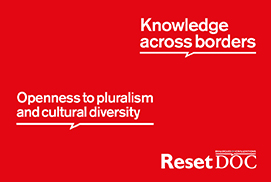30 August 2011
“Al-Shorouk newspaper was first issued in February 2009 as an independent newspaper aimed to promote the values of liberalism and modernism…During the paper’s preparation period, which lasted about a year, the idea that objectivity, accuracy and truth in everything would be published in the newspaper was the dominant idea of each meeting.” These are the words of Ashraf Al-Barbary, News Desk Chief of Al-Shorouk newspaper. In a conversation with Elisa Pierandrei Al-Barbary, he says he is convinced that the adherence to these principles makes everyone, whether at the local, regional or even international level, deal seriously with what is published in Al-Shorouk. This newspaper is part of a company linked to Dar Al Shorouk, the largest independent publishing house in Egypt, which was established in 1968 by Mohamed El Moallem, one of the founding fathers of modern publishing in Egypt and the Arab World, who started his publishing career in 1942.


